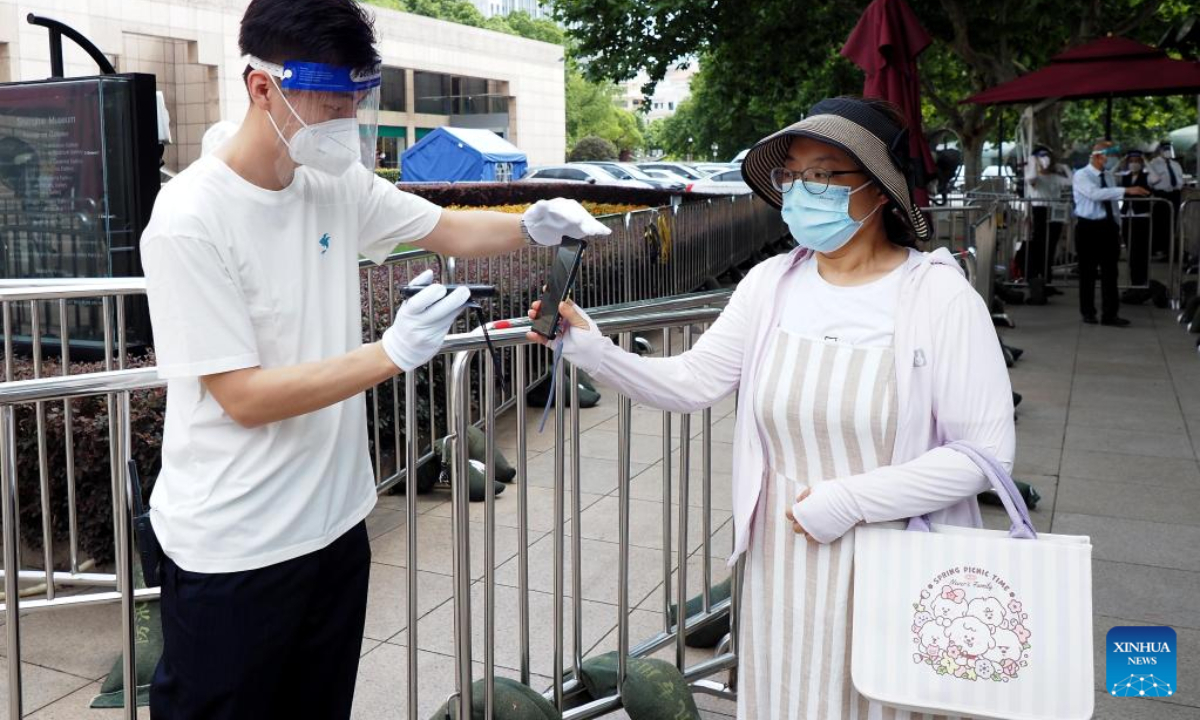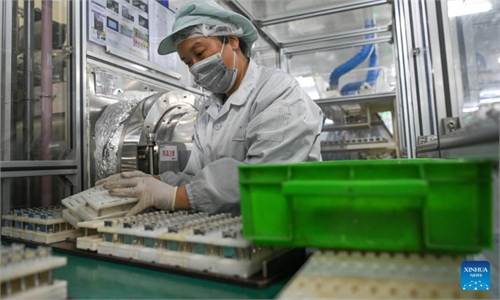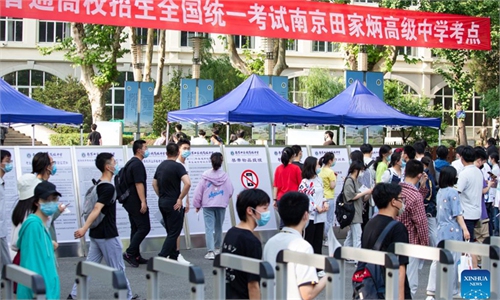Chinese local govts redress too strict anti-epidemic policies amid central govt, public supervision

A visitor has her health code checked before entering Shanghai Museum in Shanghai, east China, July 1, 2022. Photo:Xinhua
Chinese local governments are redressing some local policies, which were deemed as being too strict or discriminatory against recovered COVID-19 patients, after the central government urged local governments to rectify such regulations amid continued efforts to balance epidemic control and maintain normal life.
For the regulations that restrict unvaccinated people or those who were formerly infected with COVID-19 from entering certain venues, various regions have made corrections.
To deal with too-strict anti-epidemic policies imposed by local authorities, the State Council's joint prevention and control mechanism has established a platform on the website of the National Health Commission for people to report controversial regulations.
According to media reports on Tuesday, as of July 7, the platform had received 13,862 clues and 11,609, or 83.7 percent of them, had been dealt with. Another 2,253 cases were still being dealt with.
Local governments are rapidly moving to rectify local controversial policies following the central government's guidance. Media reported that as of July 3, a total of 11 provincial-level regions had established similar reporting platforms.
In Beijing, local officials announced on July 6 that the capital would ban people who had not received vaccines from entering some public places, including theaters and museums. However, local authorities reiterated that vaccination would be voluntary, after the announcement stirred controversy among the public.
On Monday, staff at a theater in Joy City shopping mall told the Global Times that for those who are not vaccinated, they would not prevent them from entry, but would only remind them not to forget about vaccination.
In South China's Guangdong Province, a museum on Tuesday updated its anti-epidemic policy after it was revealed to have denied access for recovered patients. Amid criticism, the museum apologized on Monday.
In Shanghai, Fen (pseudonym), a migrant worker whose story went viral on Monday for failing to find a job due the fact she used to be a COVID-19 patient, was reported to have found a job - working as a delivery person at SF Express - on Tuesday, after the city's authorities called on employers not to discriminate against the patients.
According to the screenshots of some recruitment ads that Fen showed to the media, many employers used to require applicants to "have no history of COVID infection." With little money left in her pocket, Fen lived in an underground passage near the Shanghai Hongqiao railway station until she landed on the new job. Fen was not alone. She told the media that she was waiting for the day that "recovered patients would not be discriminated against."
Yin Xin, a spokesperson for the Shanghai government, said at a press conference on Monday that all departments and institutes in Shanghai should treat recovered patients fairly and must not discriminate against them.
Yin called for society to avoid labeling these people or setting barriers for them in daily life or work. They should not make the group live in unnecessary shadows, Yin said.


